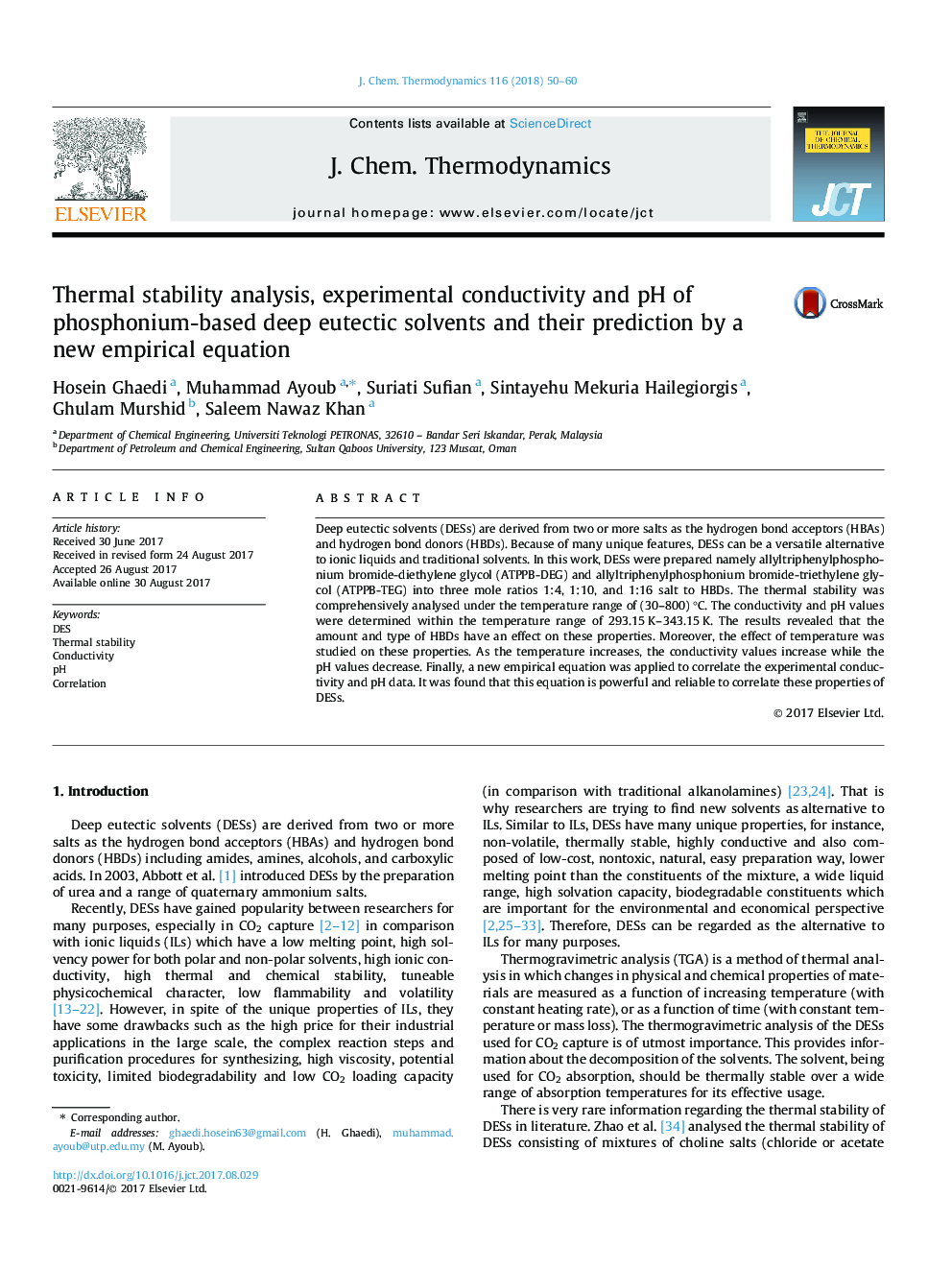| Article ID | Journal | Published Year | Pages | File Type |
|---|---|---|---|---|
| 4907197 | The Journal of Chemical Thermodynamics | 2018 | 11 Pages |
â¢Phosphonium-based DESs were prepared into low to high molar ratio.â¢ATPPB-TEG DESs had the higher thermal stability than ATPPB-DEG DESs.â¢By increasing molar fraction of HBD, the thermal stability and conductivity decreased.â¢By increasing molar fraction of HBD, the pH value increased.â¢Correlation of experimental data by using a new powerful empirical equation.
Deep eutectic solvents (DESs) are derived from two or more salts as the hydrogen bond acceptors (HBAs) and hydrogen bond donors (HBDs). Because of many unique features, DESs can be a versatile alternative to ionic liquids and traditional solvents. In this work, DESs were prepared namely allyltriphenylphosphonium bromide-diethylene glycol (ATPPB-DEG) and allyltriphenylphosphonium bromide-triethylene glycol (ATPPB-TEG) into three mole ratios 1:4, 1:10, and 1:16 salt to HBDs. The thermal stability was comprehensively analysed under the temperature range of (30-800) °C. The conductivity and pH values were determined within the temperature range of 293.15 K-343.15 K. The results revealed that the amount and type of HBDs have an effect on these properties. Moreover, the effect of temperature was studied on these properties. As the temperature increases, the conductivity values increase while the pH values decrease. Finally, a new empirical equation was applied to correlate the experimental conductivity and pH data. It was found that this equation is powerful and reliable to correlate these properties of DESs.
